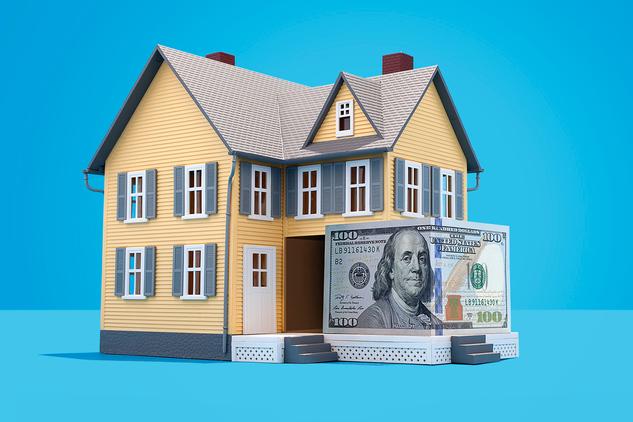
When experts calculate a person’s net worth, they don’t simply add up all the money that person has in the bank. Your net worth includes not only your cash and other financial resources, but also your assets: things like your valuable home, your car, and even the insurance policies that will someday pay out to you.
As you work hard over the years, you’ll earn a lot of cash. But you’ll also spend a lot of that cash. Some of that spending will reduce your net worth; when you buy food and eat it, for instance, that money is gone. But other types of spending will not be pure losses. Instead, they’ll transfer much of the value of the purchase price into the asset you’re acquiring.
The problem with assets
For instance, while you spent quite a bit of cash on your home, much of that value is still there in the form of your home as an asset. In fact, with a little cooperation from the real estate market and careful maintenance and care on your part, your home could end up being worth more as an asset than you paid for it in cash over the years.
Assets are important, but they work a little differently than cash. The most important thing to remember about assets is that they’re less liquid than cash. In finance, “liquidity” means how quickly something’s value can be transferred (usually to cash, which is the ultimate example of liquidity).
Your car is less liquid than cash, because you need to sell it to get spendable currency (you can’t just go to the grocery store and exchange your Honda for food). But your car is more liquid than your house, because it usually takes more time and effort to sell a house than to sell a car.
You’ll accumulate money and assets as you work hard over the years. Both are good, but some older Americans find that they have a problem: when a financial emergency strikes, they have too little cash and too much in the way of illiquid assets.
Liquidizing assets
If and when that happens, you don’t need to panic. What you should do is to look for opportunities to extract value from your assets, or to exchange those assets for cash outright.
Sometimes, this is as simple as selling a few items from a collection or offloading some of the stuff in your home that you don’t need. Maybe there’s an antique you can sell or an extra electronic device that you don’t use.
But sometimes, the need for cash is greater than what can be met with a yard sale or an Ebay auction. When that’s the case, you need to look at other options. One powerful option for the elderly and sick is a viatical settlement, explain the experts at American Life Fund. Under a viatical settlement, you sell your life insurance policy and its future payout in exchange for cash right now.
While the eventual payout will exceed the cash value of the policy now, there are a lot of situations in which cash on hand can be worth more to you than a payout that, by definition, you will not live to see. With cash right now, you can pay off bills and avoid debts that could devastate your personal finances and erase the estate that you hope to leave to your heirs.
A viatical settlement is a great way to convert an asset into cash, but it’s not your only option. You may also want to consider reverse mortgages, which allow you to draw monthly payments from the value of your home and live there for the rest of your life. After you pass, your heirs can pay back the loan or allow the house to be sold to erase the debt.
If you have investments, those relatively liquid assets are a great way to pay off debt. You could also consider downsizing in some area of your life — for instance, by selling your car and buying a cheaper one.
Offloading assets isn’t always easy, but understanding your options for doing so is crucial if you are going to enjoy financial security in your golden years.
Join the discussion on this topic with My Press Plus by visiting our contact page.

